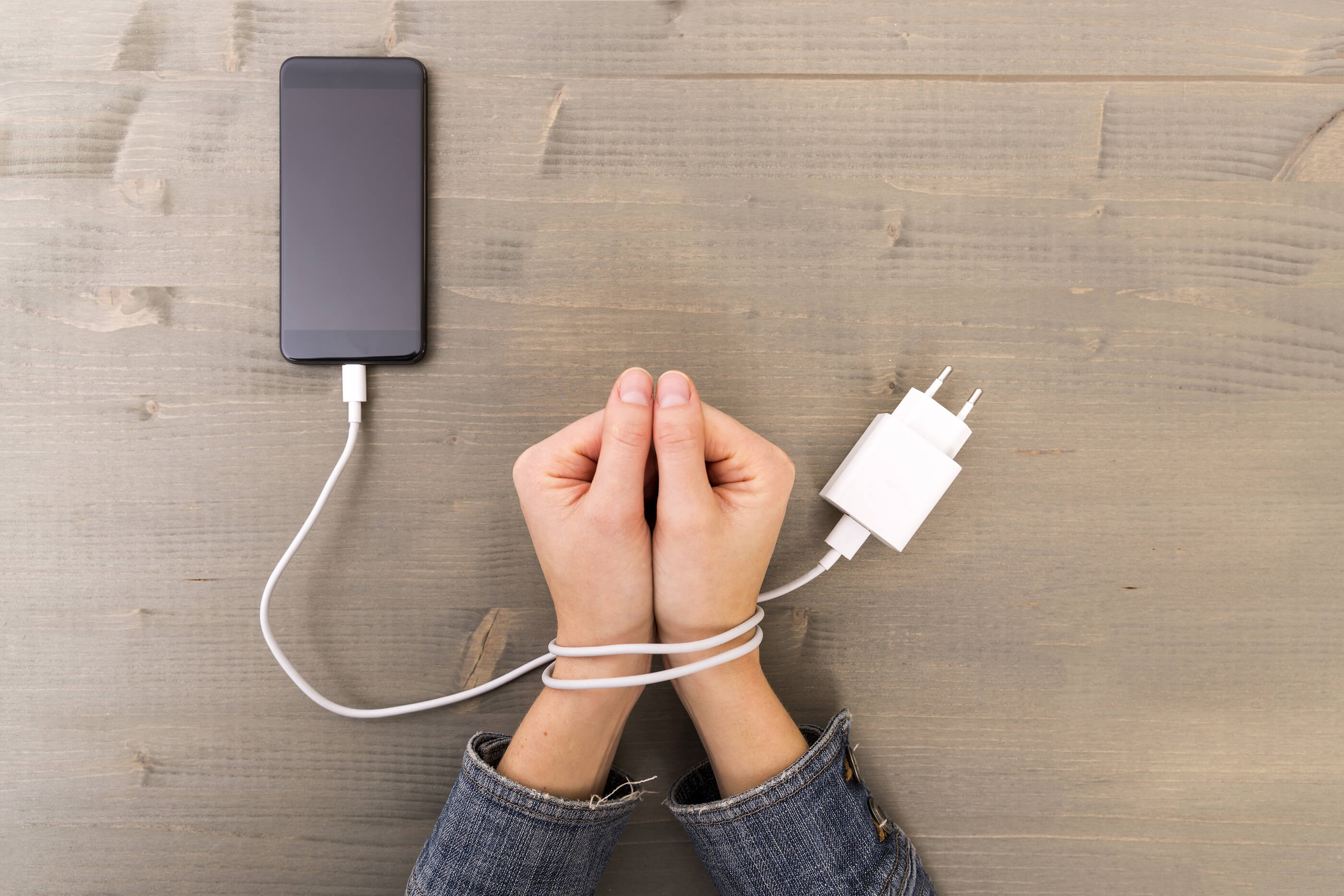Addiction isn’t always about substances. Sometimes, it's about the subtle things—like the tiny device in your pocket that keeps buzzing. Traditionally, we’d imagine an addict as someone who reaches for a bottle first thing in the morning. But today, it could just as easily be someone who instinctively checks their phone before they even get out of bed.
If you’re scrolling through messages before your feet touch the ground or firing off texts while behind the wheel, glued to your screen instead of paying attention to work—or even checking Facebook during dinner with someone you love—then your phone may not just be a tool anymore. It might be running your life.
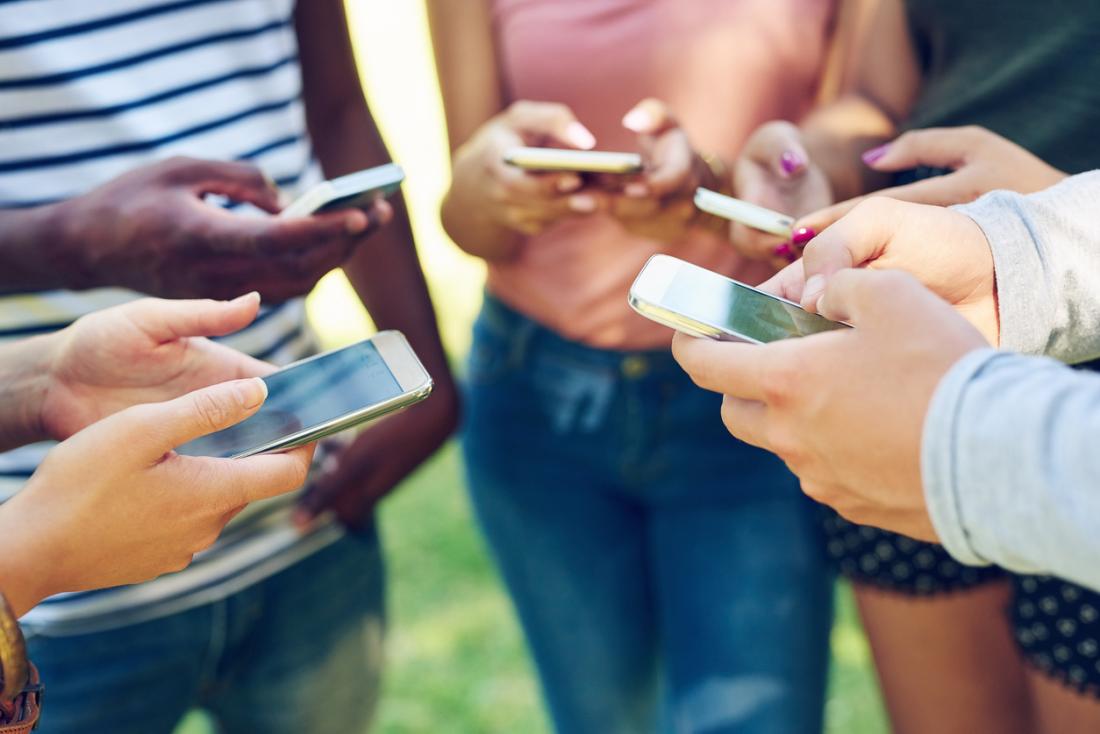
Understanding What Smartphone Dependency Really Means
While smartphones, tablets, and laptops have revolutionized our productivity and connectivity, they can also become a serious distraction—and even a harmful compulsion. If you spend more time in digital spaces than engaging with real people, or feel a persistent itch to check your notifications, apps, or games despite the problems it’s causing, it might be time to take a closer look.
The term “smartphone addiction” is sometimes casually referred to as “nomophobia”—the fear of being without your phone. But more accurately, it’s a modern form of impulse-control disorder. The issue isn’t usually the device itself, but the digital experiences it opens up—social media, mobile games, dating apps, endless feeds of videos and articles.
This kind of addiction shows up in several different digital habits:
Virtual Social Lives Taking Over Reality
Being hooked on texting, social media platforms, or dating apps can gradually replace real-world social interaction. We’ve all seen couples at dinner, both lost in their own digital universes instead of enjoying each other’s company. While the online world can foster connection, it often lacks the depth and complexity of offline relationships. Constant use of dating apps, for example, may lead to valuing quick thrills over meaningful long-term bonds.
Information Overload Gone Wild
Whether it’s compulsively browsing the web, watching hours of video clips, or doomscrolling news and feeds, the flood of information can steal hours of your life—and productivity. Eventually, it crowds out real hobbies, reduces your social interaction, and erodes your attention span.
The Rise of Cybersexual Habits
Addiction to online sexual content—whether it’s pornography, sexting, or adult chat rooms—can disrupt emotional intimacy in real relationships. The internet makes these encounters more accessible and discreet, but also more consuming. It becomes far too easy to get wrapped up in fantasies that have little to do with reality, which can distance people from their partners and diminish emotional depth in their lives.
Online Compulsions That Drain Your Wallet
From late-night bidding wars on auction sites to the thrill of gambling apps or obsessively checking the stock market, online compulsive behaviors can spiral fast. Digital environments offer non-stop access and instant gratification, making it even harder to hit pause. You might find yourself shopping for things you don’t need, staying up to click “place bid,” or risking money you can’t afford to lose.
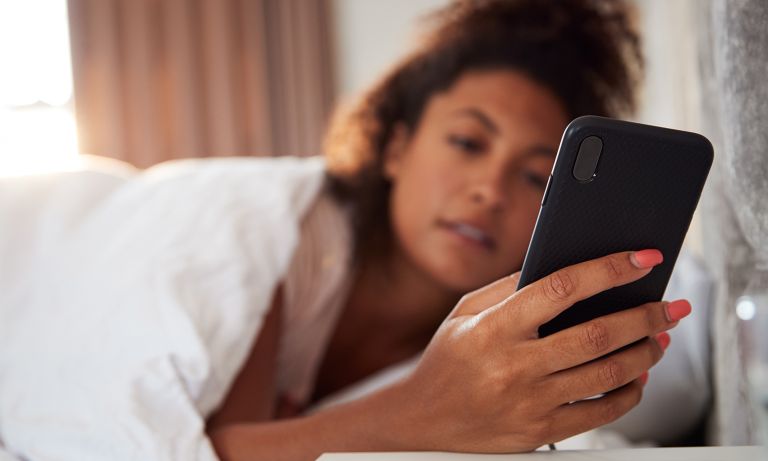
Why We Get Hooked: Triggers and Fallout from Excessive Smartphone Use
The problem isn’t just that smartphones are convenient—it’s that they’re always within reach. These compact machines are now our alarm clocks, entertainment centers, communication hubs, and more. And just like drugs or alcohol, interacting with your device can release dopamine—a chemical that gives you a hit of pleasure. The more you indulge, the more your brain craves that reward, needing longer and more frequent sessions to feel the same high.
In some cases, overuse can be a symptom of deeper emotional struggles like anxiety, loneliness, stress, or depression. Unfortunately, instead of helping, smartphone dependency can amplify these issues. If you rely on your phone to avoid discomfort in social situations, you may be unintentionally cutting yourself off from meaningful human interaction—the very thing that could help you feel better.
Here's How Phone Overuse Can Make Things Worse:
-
Loneliness and Depression Intensify: While diving into the online world may seem like a good escape, it often deepens feelings of sadness. A 2014 study found that people who used social media heavily were more likely to report feelings of depression and anxiety. Constantly comparing your life to others’ filtered posts can leave you feeling inadequate or left out.
-
Anxiety Gets Amplified: Even just having your phone nearby can cause subtle stress. Research shows that people perform worse on tasks and feel more anxious in the presence of their phone—even if it doesn’t buzz.
-
More Stress, Less Recovery: When your work life seeps into your personal time through constant emails and notifications, your brain never gets a break. This can lead to chronic stress and even burnout.
-
Shorter Attention Span: Constant notifications, messages, and app updates make it nearly impossible to stay focused on one task for long. The constant switching fragments your thoughts and disrupts deep concentration.
-
Blocked Creativity: That quiet moment of daydreaming, where ideas often spark? It’s interrupted by a ding. The never-ending need to stay connected stifles the mental space needed for problem-solving or creative thinking.
-
Poor Sleep: Blue light from screens suppresses melatonin production, making it harder to fall and stay asleep. And if you’re checking your phone late into the night, your body and brain don’t get the rest they need.
-
Self-Centered Behavior: Excessive time on social platforms can encourage a me-focused mentality. Studies show a link between social media overuse and traits like narcissism, where constant validation becomes a craving, and real-world relationships suffer as a result.
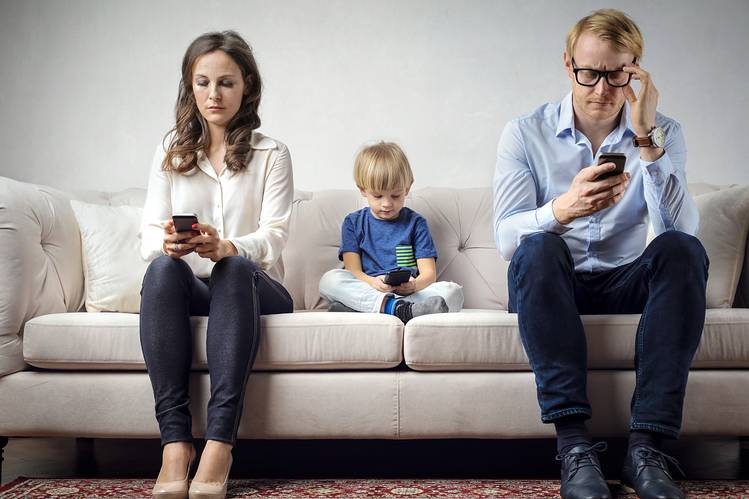
Recognizing the Red Flags: Are You Hooked on Your Phone?
There’s no single number of hours or scrolls per day that defines smartphone addiction. What really matters is how your usage impacts your life. Are your relationships suffering? Is your job performance dropping? Are you constantly zoning out in social settings to check your phone?
If the screen time is taking priority over real-world priorities, it’s worth re-evaluating your digital habits.
Watch for These Common Warning Signs:
-
Struggling to Finish Daily Tasks: Whether it’s missing work deadlines, ignoring household chores, or burning dinner because you’re absorbed in your screen, phone time can quietly sabotage your productivity.
-
Pulling Away from Loved Ones: Skipping hangouts, tuning out in conversations, or preferring online chats over spending time with your partner or friends can signal a shift toward isolation.
-
Being Secretive About Your Usage: If you hide your screen from others, downplay how long you've been scrolling, or sneak off just to check notifications, there may be an unhealthy attachment brewing.
-
FOMO Taking Over: Fear of missing out can drive constant checking. Feeling anxious when you're not online or wondering if others are having more fun can be mentally exhausting.
-
Panic When Disconnected: If you feel jittery, irritable, or panicked when your phone battery dies or you leave it at home, and you’re plagued by phantom buzzes, it’s time to pause and reflect.
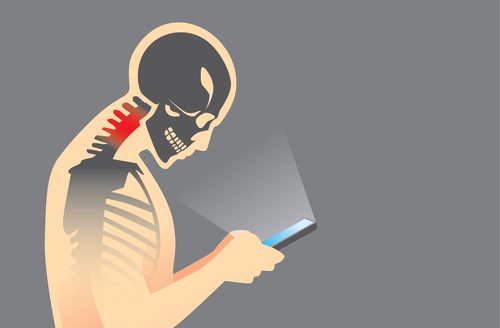
Recognizing Withdrawal: When Your Phone Feels Like a Drug
Trying to cut back on phone usage can trigger genuine withdrawal symptoms—just like any other addiction. These reactions are strong indicators that the relationship you’ve developed with your device isn’t just habitual; it’s compulsive.
You might experience:
-
Uneasiness or fidgeting when you’re not near your phone
-
Sudden irritability or mood swings when denied access
-
Trouble focusing on anything that’s not screen-based
-
Restlessness during downtime
-
Difficulty sleeping without your usual late-night scroll
-
A persistent desire to “just check one thing” on your phone
These signs reflect not just a digital habit, but a psychological dependency.

Breaking the Cycle: Five Practical Ways to Regain Control
Conquering smartphone addiction doesn’t require going off-grid or tossing your device into the ocean. It's more about shifting your habits and building healthier relationships with your screen. Here are five powerful strategies that can help you reclaim your attention and peace of mind—without needing to ditch your phone altogether.
1. Revisit the Apps You’ve Installed
Do a digital detox—not by deleting everything—but by mindfully reviewing what’s on your phone. Which apps genuinely improve your life? Which ones drain your time and energy?
Take a few minutes to look at your home screen. If you see multiple social media icons or apps you only use to kill time, consider removing or disabling them. Even moving them into folders or to a secondary screen can make you pause before launching them on autopilot.
Start with this quick inventory:
-
When did I last use this app?
-
Does it serve a useful purpose or bring me joy?
-
Am I using this app because I’m bored or because it adds value?
Decluttering your phone doesn’t just save storage space—it also creates mental space.
2. Keep It Out of Sight (and Mind)
We often grab our phones simply because they’re there. Try creating intentional barriers.
When you're eating, watching TV, working, or hanging out with friends, physically move your phone to another room. If that feels extreme, place it in a drawer or bag, or flip it face down to prevent screen glances.
Research shows even having a phone visible on a table—without using it—can reduce attention and lower the quality of conversations. So if you're aiming to connect, create some healthy distance from your device.
Bonus tip: Use a real alarm clock instead of your phone to help break the “check-my-notifications-first-thing” cycle.
3. Don’t Go Cold Turkey—Taper Off Gradually
Going from 12 hours a day to zero is rarely sustainable. Instead, try setting time boundaries and build your tolerance for boredom and stillness over time.
Try app timers or screen-time limits to give yourself a hard stop. Apple’s Screen Time or Android’s Digital Wellbeing features can help. You can also set specific “phone-free” times—like during meals, one hour before bed, or the first hour after waking.
Even a 15-minute daily break can retrain your brain and help you rediscover other joys—reading, walking, journaling, or simply letting your mind wander.
4. Swap Doomscrolling for Real-World Joy
You don’t need to “just quit”—you need to replace. When you remove the hours you spend on your phone, what are you filling that time with?
Fill the gap with rewarding, offline activities that engage your body and mind. Take up something creative like painting, playing music, gardening, or even cooking without recipe videos. Call a friend. Take a real walk, not one tracked by an app.
Replacing the dopamine hit from scrolling with other small pleasures can help rewire your habits. And in the long run, those habits become your new normal.
5. Get Support If You Need It
If your phone use is severely impacting your health, work, or relationships—and you can’t scale it back on your own—it may be time to talk to someone. Psychologists and behavioral therapists can offer insight and guidance tailored to your specific challenges.
Support groups, both online and in person, are also options. Ironically, some helpful communities exist on the internet to assist those struggling with digital overuse. The key is that you're not alone, and change is possible.
No Need to Ditch the Device—Just Reclaim Your Power
Smartphones are part of modern life—they’re not going anywhere. And they can be tools for connection, productivity, and even creativity. The goal isn’t to eliminate them but to take back control of how you use them.
When you create boundaries, rediscover offline activities, and remain aware of your behaviors, your phone becomes just a device again—not a leash. Life outside the screen is waiting—and it’s much more vibrant than anything your feed can show.

